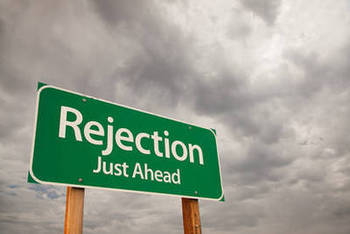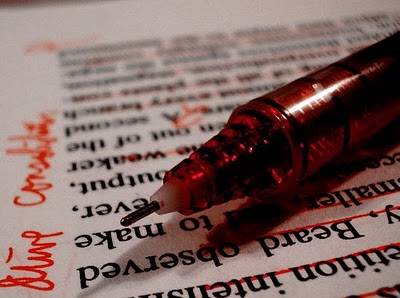
No, I haven’t gone all psycho or masochistic on you. Obviously you don’t want to get rejected. You don’t write to get rejected. At least I hope you don’t.
But when you are a writer, in addition to death and taxes, you can also count on being rejected. It just comes with the territory.
However not all rejections carry the same value, and they definitely don’t have the same effect.
Now, I think we can agree on the types of rejection that suck:
1) The “no-reply” rejection
Days pass. Weeks go by. Nothing from the editor/publisher. Nada.
Did your query get lost in the inbox? Did the editor see it, and file it to check it out later? Did it get in the spam folder? Or it was seen, read and rejected?
There’s no way to know, so you have 2 options: Follow up, or forget.
Frankly, so far I’ve not really gained anything from a follow-up apart from a short thanks-but-no-thanks reply in one case. Other times my short, polite and to-the-point follow-up emails were never returned.
Carol Tice makes a valid point in the post she explains her follow-up strategy: She just doesn’t do it. Because it’s better to move on than spend time chasing one idea.
However sometimes the idea is too good, too timely to miss, so you want to get your reply as soon as possible.
So I appreciate publications that include their response time in their guidelines while advising to pitch elsewhere if you don’t hear from them in that period.
2) The ever-late thanks but no thanks reply
It’s indeed a case of “better late than never”. Because at least you know you have to move on, and you don’t need to waste time following up.
But it’s still a rejection, and it involves no specifics on why your idea wasn’t good enough. And while there’s no obligation on the editor’s part to explain (or frankly any expectation from me to hear the why), it leaves you guessing on what didn’t work.
The idea? The timing? The language? A combination of several factors?
But of course I’ll take this one over no reply any day.
3) The cruel reply.
I haven’t received this, and I’m hoping I won’t. But some horror stories from other writers did let me believe that some people might get too creative in their rejection emails when they detail their reasons. Constructive criticism is appreciated. Attacks aren’t.
Now on the good stuff: 2 Types of Rejection to Love
1) The fast rejection:
Some editors are very quick (as in they reply in a week or two) in responding, whether they like your pitch or not.
Most of the time these fast-answering editors are also writers, and they know (and not just remember) what it is like to be querying.
Of course my initial reaction is disappointment, but soon it’s replaced by genuine gratitude. It feels great knowing that you can move on with the idea.
2) The personalized rejection, preferably with an invitation to pitch again.
I once got rejected by an editor who didn’t find my piece (on spec) lively enough. But she went on to say that she liked my writing in general, even naming a piece that she liked from this blog, and invited me to pitch again. That was the best rejection ever.
I could go back to review what went wrong with my style, and manage not to remake those mistakes again. I also felt flattered and encouraged, as opposed to down and disappointed.
*
We all get rejected at one point ot another. So it’s just better when we know for sure, and we know why.
Do you have problems dealing with rejection? These posts will help. They might even make you smile:
How to Handle Rejection (and When It Might Be A Good Thing)
How to Manage the Evil Three: Rejection, Depression & Procrastination
A Unique Way of Dealing with Romantic Rejection

